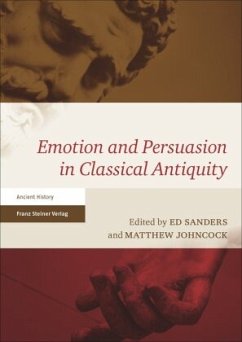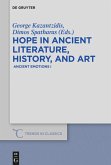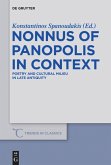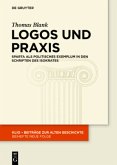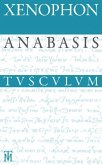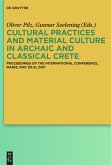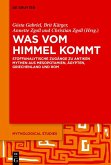Appeal to emotion is a key technique of persuasion, ranked by Aristotle alongside logical reasoning and arguments from character. Although ancient philosophical discussions of it have been much researched, exploration of its practical use has focused largely on explicit appeals to a handful of emotions (anger, hatred, envy, pity) in 5th-4th century BCE Athenian courtroom oratory. This volume expands horizons: from an opening section focusing on so-far underexplored emotions and sub-genres of oratory in Classical Athens, its scope moves outwards generically, geographically, and chronologically through the "Greek East" to Rome.
Key thematic links are: the role of emotion in the formation of community identity; persuasive strategies in situations of unequal power; and linguistic formulae and genre-specific emotional persuasion. Other recurring themes include performance (rather than arousal) of emotions, the choice between emotional and rational argumentation, the emotions of gods, and a concern with a secondary "audience": the reader.
Key thematic links are: the role of emotion in the formation of community identity; persuasive strategies in situations of unequal power; and linguistic formulae and genre-specific emotional persuasion. Other recurring themes include performance (rather than arousal) of emotions, the choice between emotional and rational argumentation, the emotions of gods, and a concern with a secondary "audience": the reader.
"Aufgrund seiner thematischen und methodischen Vielfalt bietet der sorgfältig edierte Band somit einen breiten Überblick und auch eine Vielzahl anregender Einblicke in das Forschungsfeld, wobei auch sein hohes Maß an Einheitlichkeit die Rezeption enorm erleichtert."
Uwe Herrmann H-Soz-Kult, 28.11.2016 20161128
Uwe Herrmann H-Soz-Kult, 28.11.2016 20161128

